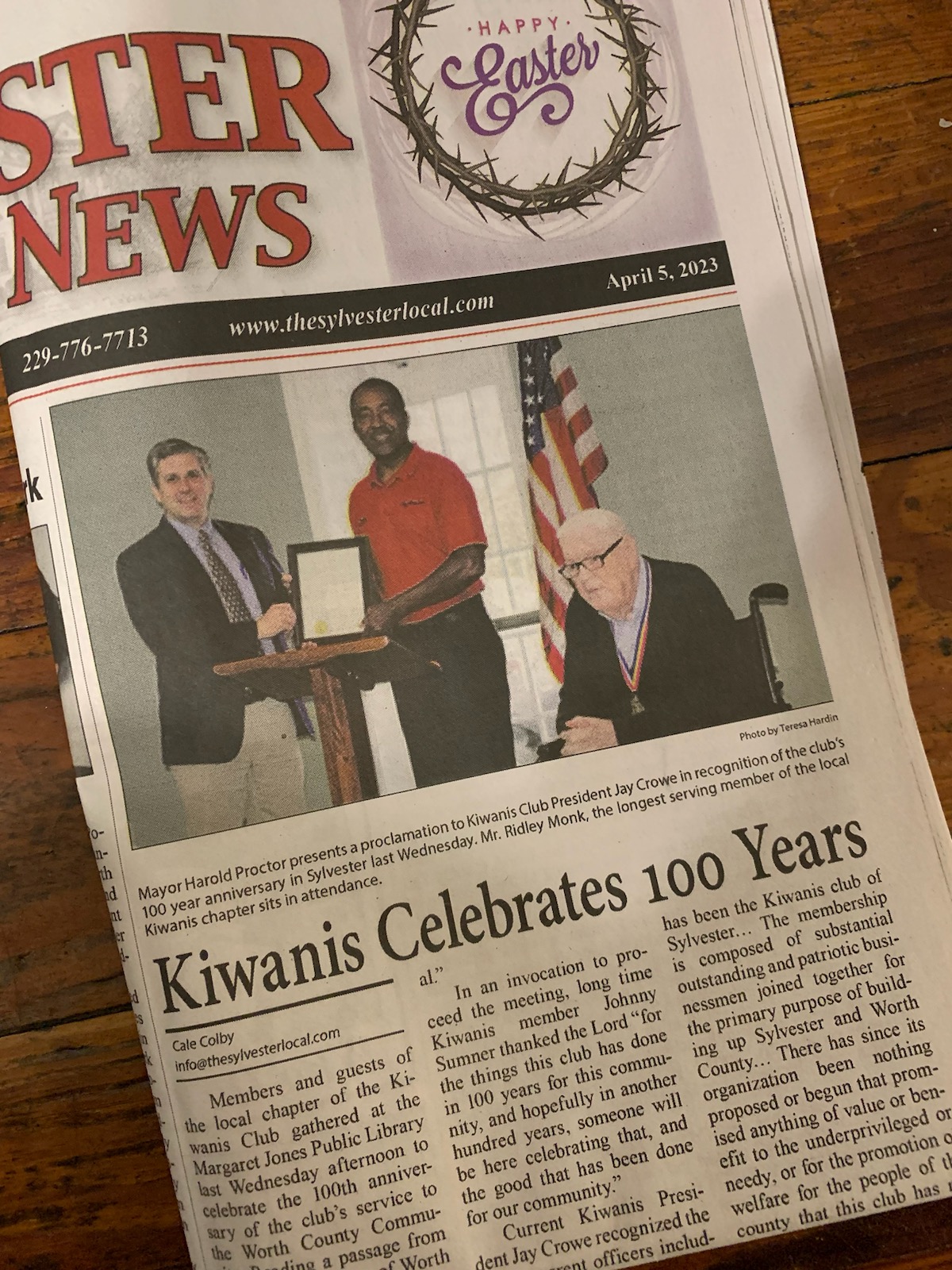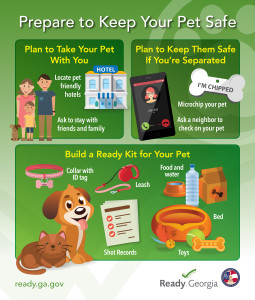By Paul Williams, DVM, GEMHSA
Our pets give us unconditional love and constant companionship. Isn’t it time we did something in return for them? During National Pet Preparedness Month in June, the Georgia Emergency Management & Homeland Security Agency (GEMHSA) encourages you to celebrate your furry companions by preparing to care for them in an emergency. Planning ahead for disaster will prevent you from being caught off-guard by the unexpected, and it will ensure that you are able to safeguard yourself and your pet.
For many people, pets are important family members, which is why they should be a part of your emergency preparedness plan. What will you do with Tiger, Daisy, Smokey or Oreo in an event such as a hurricane, tornado or flood? Here are a few tips to help you prepare in advance for the sake of your pet’s safety:
- Start with the basics – Prepare your pets just like you would your two-legged family members. Create a Ready kit and include basic items such as food and water for three days, medication and important documents like rabies vaccination forms. You may also want to include an extra collar with an ID tag, an extra harness or leash and familiar items such as favorite toy, bed or crate to reduce stress.
- Arrange a safe haven – There are two things to keep in mind: If it isn’t safe for you to stay at home, it isn’t safe for your pets. Also, if you have to evacuate, most public shelters cannot accept animals. Make a plan detailing where to take your pet during an emergency. Try to locate a hotel or shelter that would accept you and your pet. Or consider a boarding facility. You could also ask neighbors, or friends and relatives outside of your immediate area, if they could be a temporary caregiver for your pet.
- Stay put and stay safe – At the first sign of a warning or storm disaster, always bring your pets indoors. Make sure that all of your pets wear collars and tags with up-to-date identification in case you have to evacuate immediately. Leaving pets behind, even if you try to create a safe place for them, is likely to result in them being injured, lost or worse. Stay informed by monitoring a local radio station, TV station or NOAA Weather Radio for the latest information, and follow the directions of local officials when told to evacuate. You can also download the Ready Georgia mobile app to receive severe weather alerts.
For more helpful tips and information, be sure to visit the Ready Georgia website, or follow GEMHSA on Facebook page and Twitter.
Dr. Paul Williams joined the Georgia Emergency Management and Homeland Security Agency in 2000. In 2001 he received the Governor’s Award for his contributions in Emergency Management and Public Safety and in 2013 received the Department of Homeland Security, Office of Health Affairs Award of Excellence. Dr. Williams has presented his work at numerous conferences worldwide, and has also provided subject matter expert testimony before House and Senate Homeland Security Committees.


